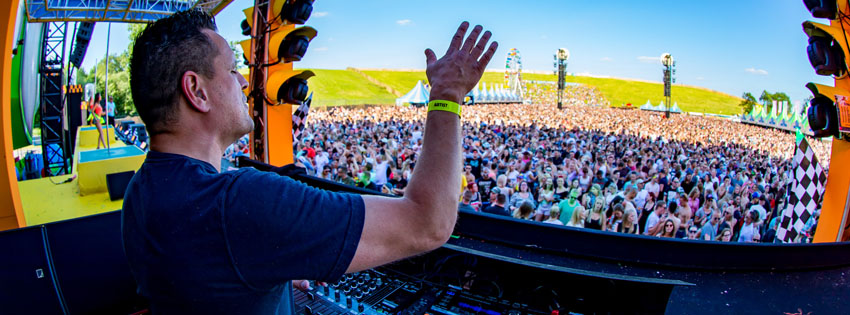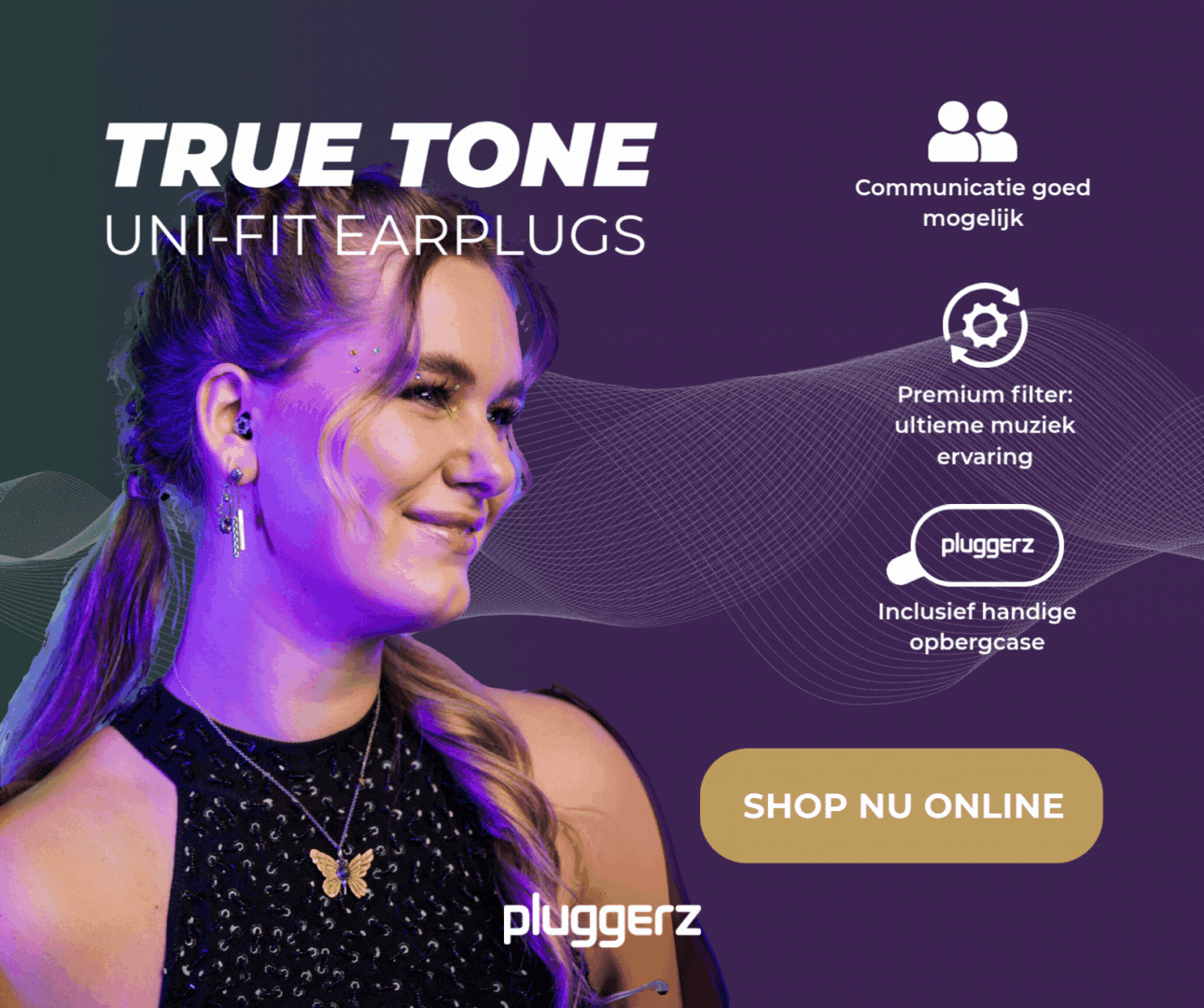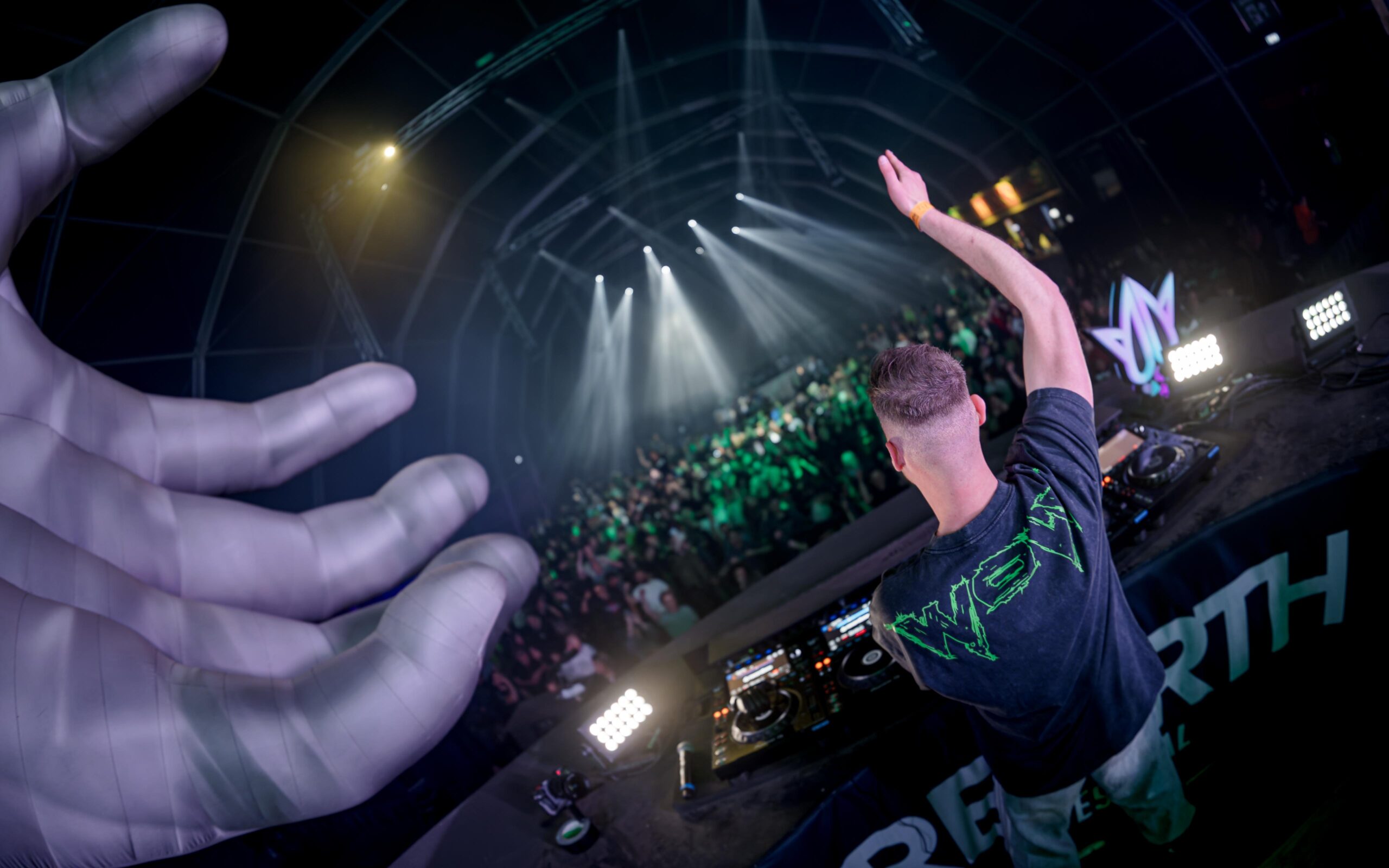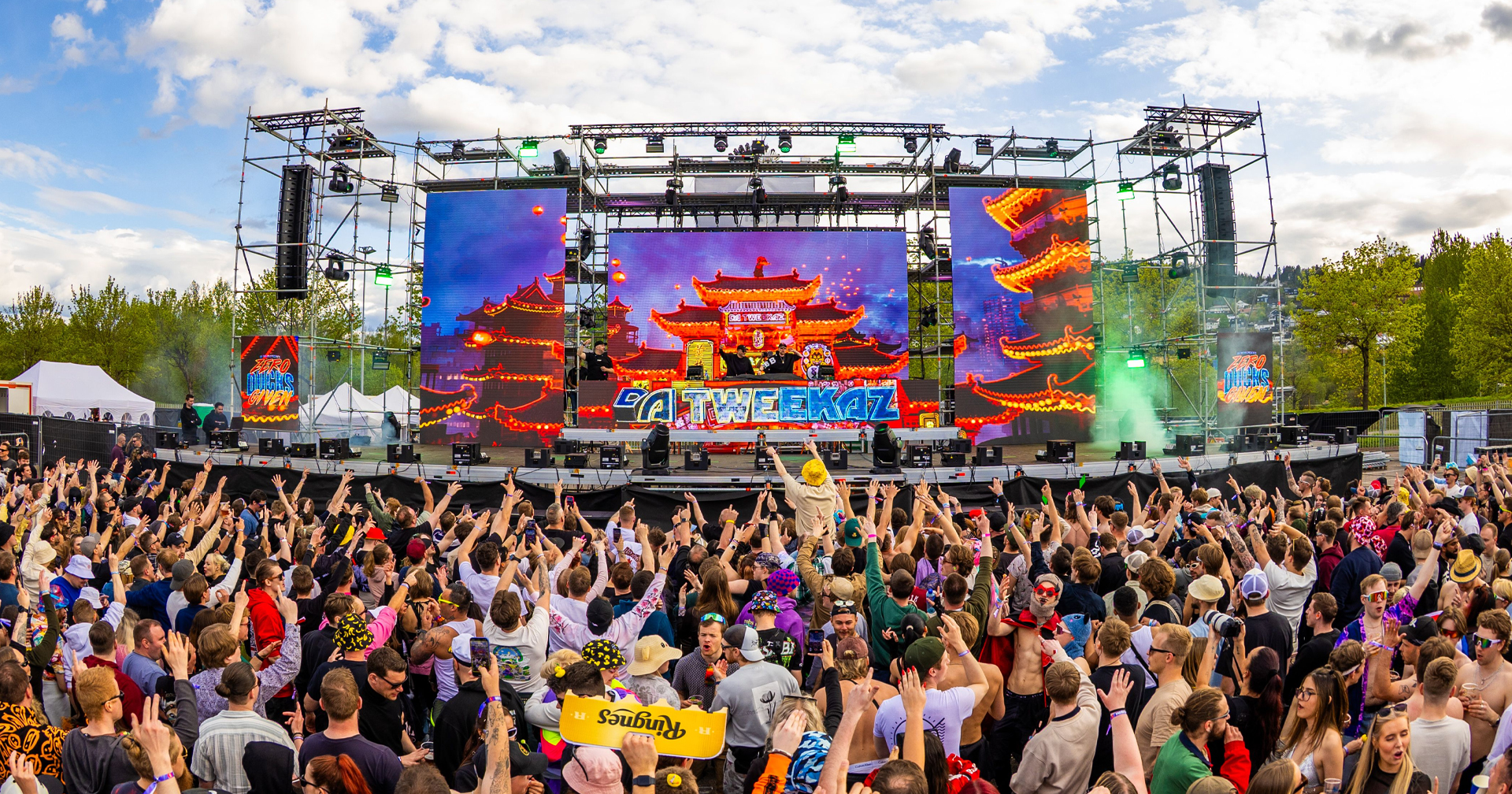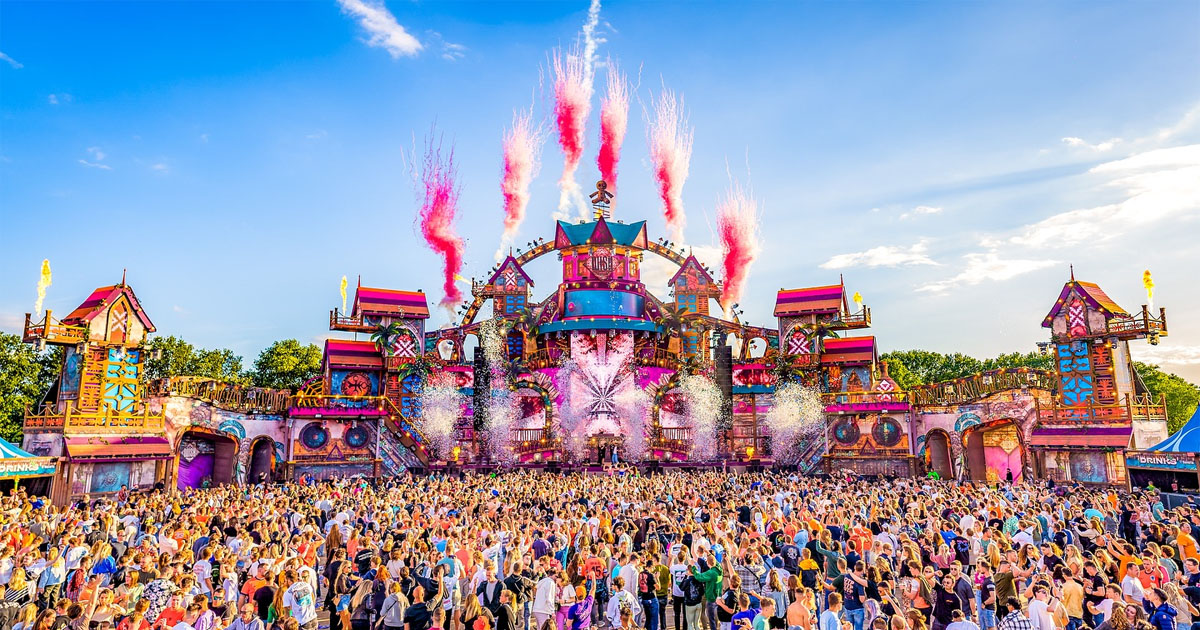Back in 2008, The Fusion Of Sound came out and to this day it is a known term within the hardstyle scene. With a lot of releases during the impressive career of Zany this album is now celebrating a 10 year-anniversary. We talked to the maker to look back at this successful album.
In Zany’s memories, the reactions on the album were all very positive. “It’s been a while, but the fact that we ‘suddenly’ dropped an album, without giving previews or anything, had a big impact and luckily the fans appreciated the album. Some DJ’s actually wanted the tracks earlier so they could play them in their sets”, so Zany explains. Over the years Raoul then produced a lot of different genres of dance. “I went to the studio like I always do. Just freedom and happiness, I just do whatever feels good or fits me at that moment.”

However, he didn’t have a specific approach for The Fusion of Sound album. “For this album the tracks had to be just some hardstyle bangers. Not specificly hard or melodic, just tracks for the dancefloor and that’s what you can hear on the album. The Fusion Of Sound is a very widely oriented album, which is the reason the tracks had support of many other DJ’s. These days with albums, I notice that just one track stands out while the rest is (with al due respect) more to fill up the album. I think that wasn’t the case for The Fusion Of Sound, because the approach was to make a banger of an album, and personally I think I succeeded”, so Raoul explains. “People still like the tracks to play or listen, maybe that is the reason why so much new producers were inspired which maybe is the reason why the scene is still growing!”, he looks back on The Fusion Of Sound with great pride and pleasure.
“The experience of buying music is unfortunately gone”
Now it has been 10 years since the release and still a lot of tracks of the album get played and listened to. “For me it’s just a compliment the album seems to be timeless. I think the end of 2008 was a turning point in the scene when everything became more accessible for a wider crowd. Not particularly the album represented this turning point, but it had a positive influence on the new generation of producers. That’s something I am very proud of.”
At this moment we are living in a time in which music is streamed a lot more and physical copies are disappearing from the market. How many copies of The Fusion Of Sound were sold, the DJ can’t tell us exactly. “Thousands I think. Besides that we brought 3 samplers on vinyl which had extended versions, and also of these samplers thousands were sold. Numbers you unfortunately can’t reach now with physical copies. You say ‘unfortunately’. Do you dislike the disappearance of the physical copies? “I think it’s very unfortunate but on the other side it is easy. But what is more beautiful than going to the music shop on Fridays after school, to get the newest bangers for that weekend? Looking at it that way, the experience of buying music is gone, I think.”

“Back in 2002 there was only one thing, hardstyle”
When The Fusion Of Sound came out there was only ‘hardstyle’. These days people are putting music in specific corners, but is that in benefit of the scene? “For example, look at how many colours of blue jeans brands offer these days… Seems to me that there is need to name it different”, he tells about the divison of the scene. “Back in 2002 there was just one thing, hardstyle, but that developed into a lot of sub genres. I like most of these sub genres but some of them I just don’t. When I say I don’t like that I name the sub genre but that doesn’t mean I don’t like ‘hardstyle’ anymore.”
“Over the years the sound has changed a lot. These days we have Euphoric, Freestyle, Raw an even Extra Raw I think. One is more in the direction of pop music while the other goes beyond the present-day hardcore”, Zany explains about the recent changes in the scene.
“As an artist you are forced to release new music even faster”
According to Zany, not only the sound has changed a lot. “The listening-behaviour of the fans is totally different. Nowadays everything has to be fast. You don’t go to the stores to buy your stuff, but you’re one click away from having it instantly. That’s the reason you don’t attach to the music as a fan, and as a producer you are forced to produce even faster to bring more music. This has its outcome on the quality of tracks. Don’t get me wrong, in the hardstyle scene there are some very good producers. Maybe the best producers in the whole dance-scene, because we are so focused on sound-design and bringing sick kicks and beats. But 90% is listening to the music with earphones so they can’t hear this.”
Raoul is sure that The Fusion Of Sound would be appreciated now als much as it was 10 years ago. “100%! The scene has changed, but you also see the ‘classics’ parties are getting more popular, so apparently people still appreciate these sounds. Back then we didn’t make music to have it played on the radio, but to entertain people during events.”

“Playing a set on vinyl still gives a rush”, he answered the question about what he misses most from the past. “But I have to say you had to be very careful. When you were jumping on stage the needle could jump over or the equipment. On the other hand, you had to be very skilled to handle it while nowadays it’s a lot easier. I think the vinyl DJ’s from that time can be better and even more creative with the new equipment, if they wan’t to make that switch of course”, he says laughing.
“Nowadays you have to repeat yourself over and over to just get some attention”
“While I was making an album back in the days, I locked myself up in my studio. Everything I made stayed inside until the releasedate. Back then there was no social media where you could give a sneak-peek to hype people. People just knew: a new Zany album is coming. The fans were waiting, but didn’t forget it looking at all the questions I received”, so Raoul explains. “If you announce an album now and you don’t speak about it for a month, everybody seems to forget about it because their needs were fulfilled with lots of other news from different DJs. These days you have to repeat it endlessly to stay in the thoughts of the people and get their attention.”
Zany agrees with the note that it’s very easy to drop an album now. “Nowadays it’s a lot easier to produce music looking at the quality of the software and computers. Back when I started I had to take a loan to buy equipment, and not everyone was able to do that. These days you see people creating sick tracks with their computer which is very positive for the scene. Maybe there were a lot of good musicians in the past but they weren’t able to develop themselves.”

“The other side of this easy accessibility is that people think they ‘have’ to produce music. Because of that sometimes I get, with all due respect, crap sended towards me. If I don’t like it or labels are not interested to release it, people drop it online themselves. That is a disadvantage about the present time.”
The highlight in the long career of Zany is very clear to him: “I get that question very often and the answer still hasn’t changed: my very own Q-Xlusive in 2007. That night was perfect from start till end, I really loved it.” To close the interview: when we ask about possible upcoming albums the DJ said: “No comment.”
Every month Zany drops a new episode of his podcast which is named inZanity. His last episode was a The Fusion Of Sound special. So if you want to look back at that album, it’s possible with the podcast down below.
Photos by Facebook page Zany en website b2s
